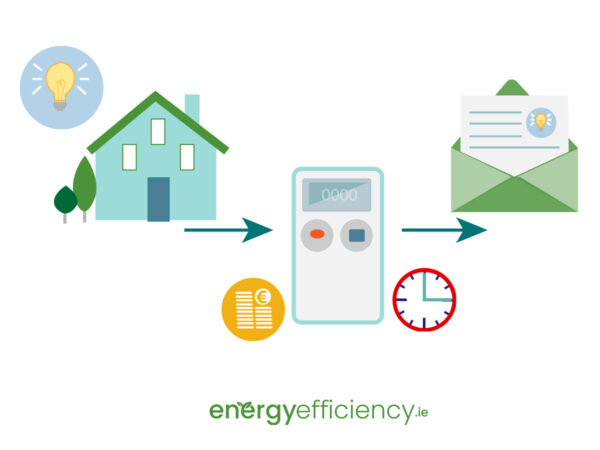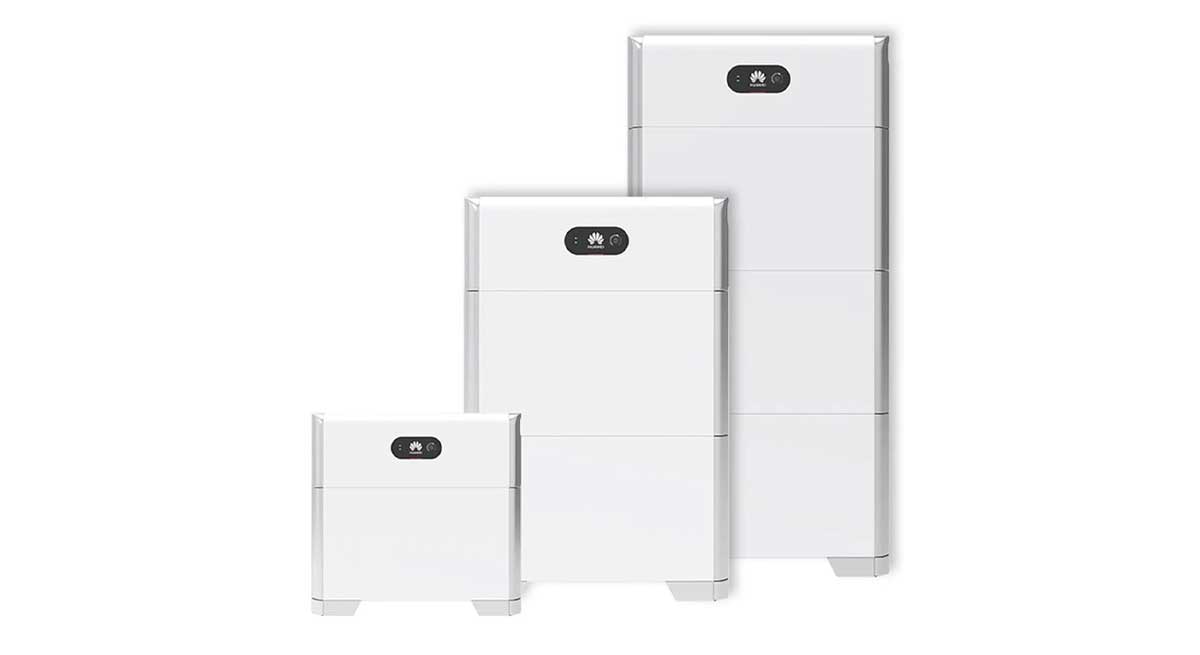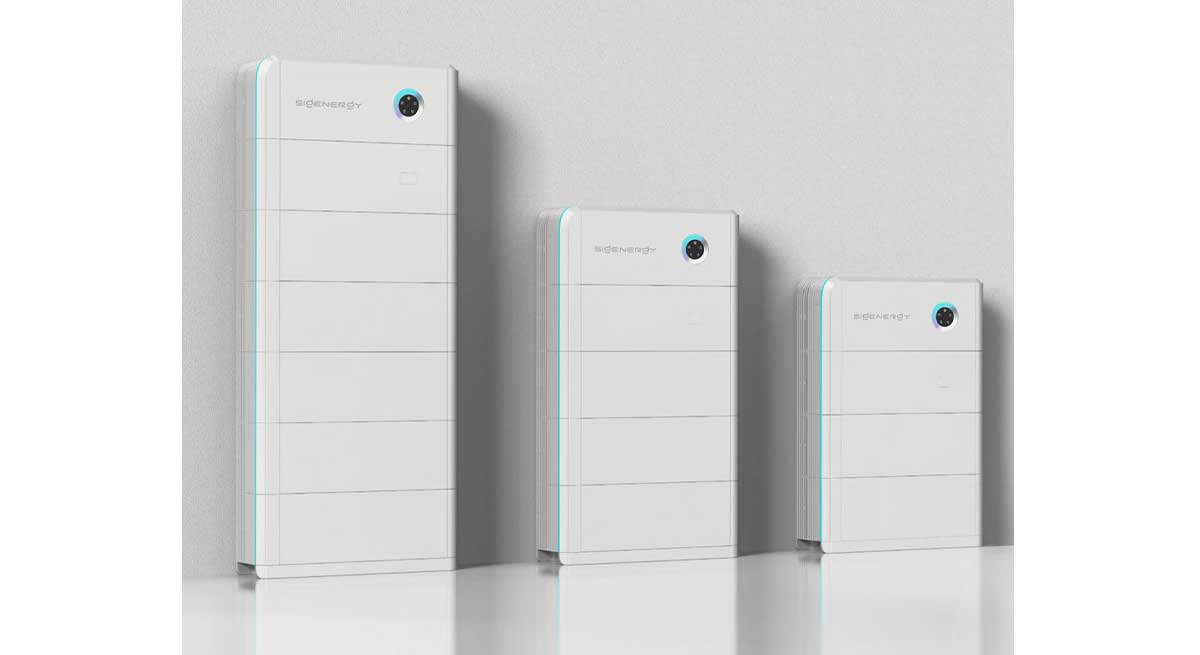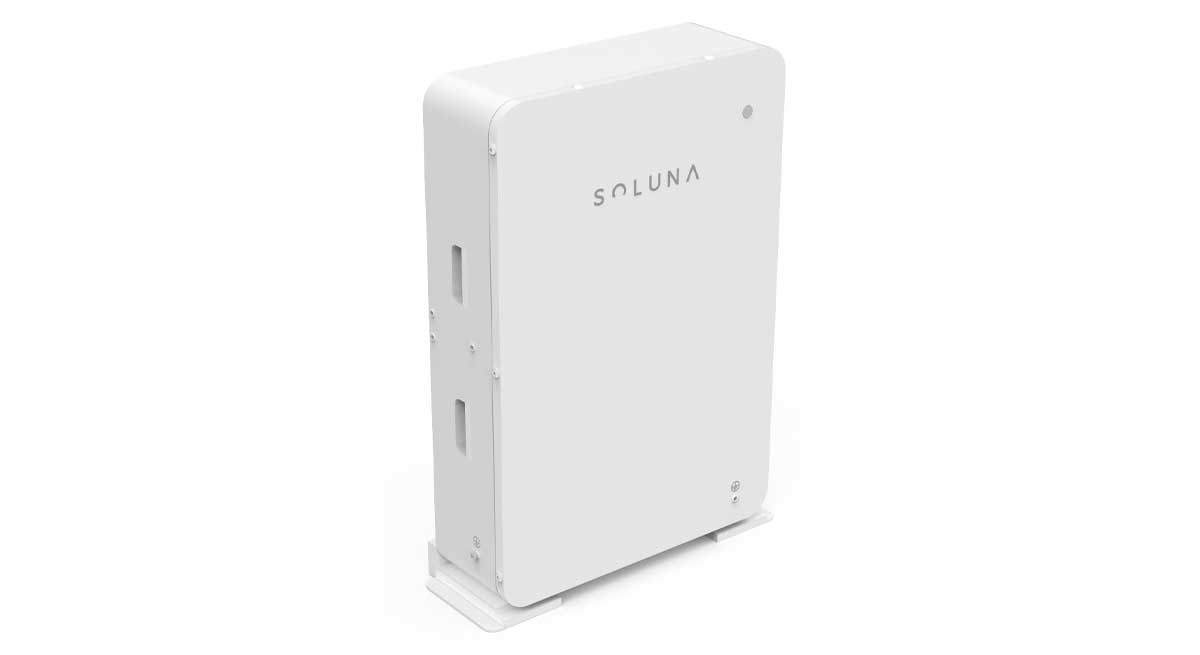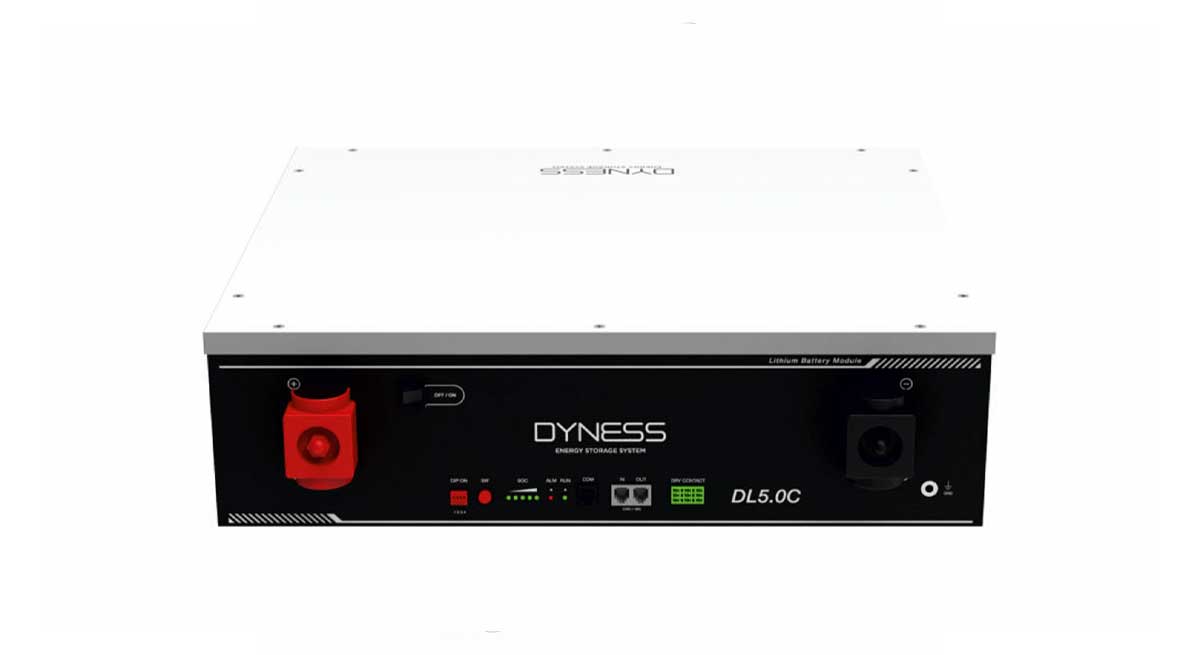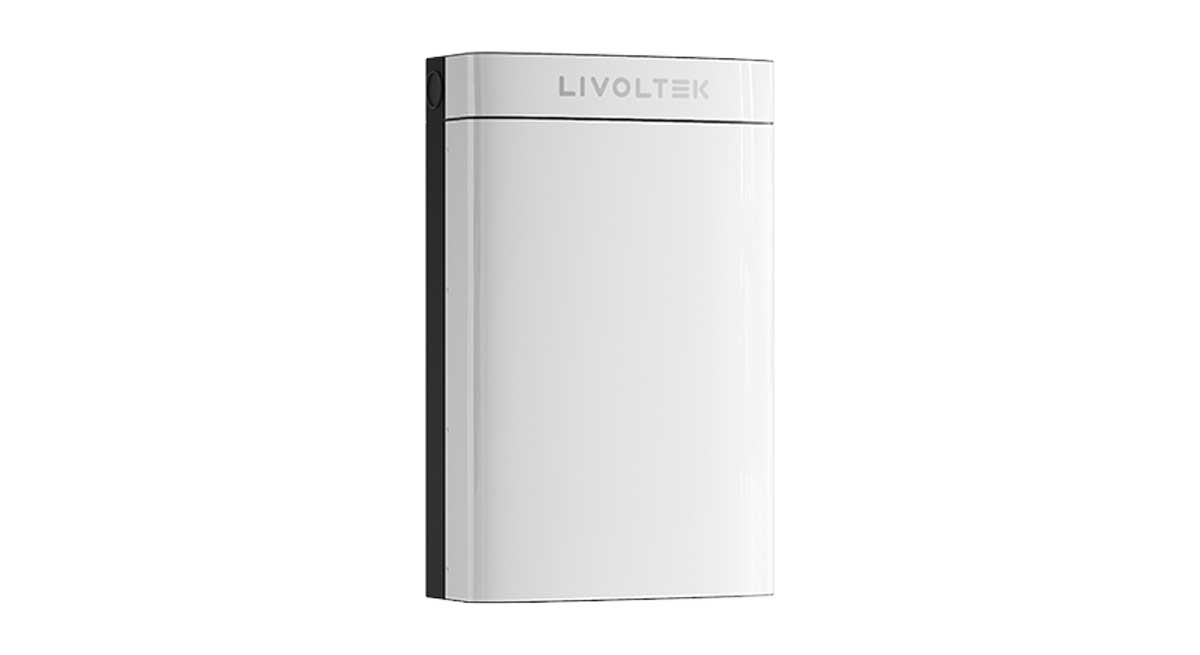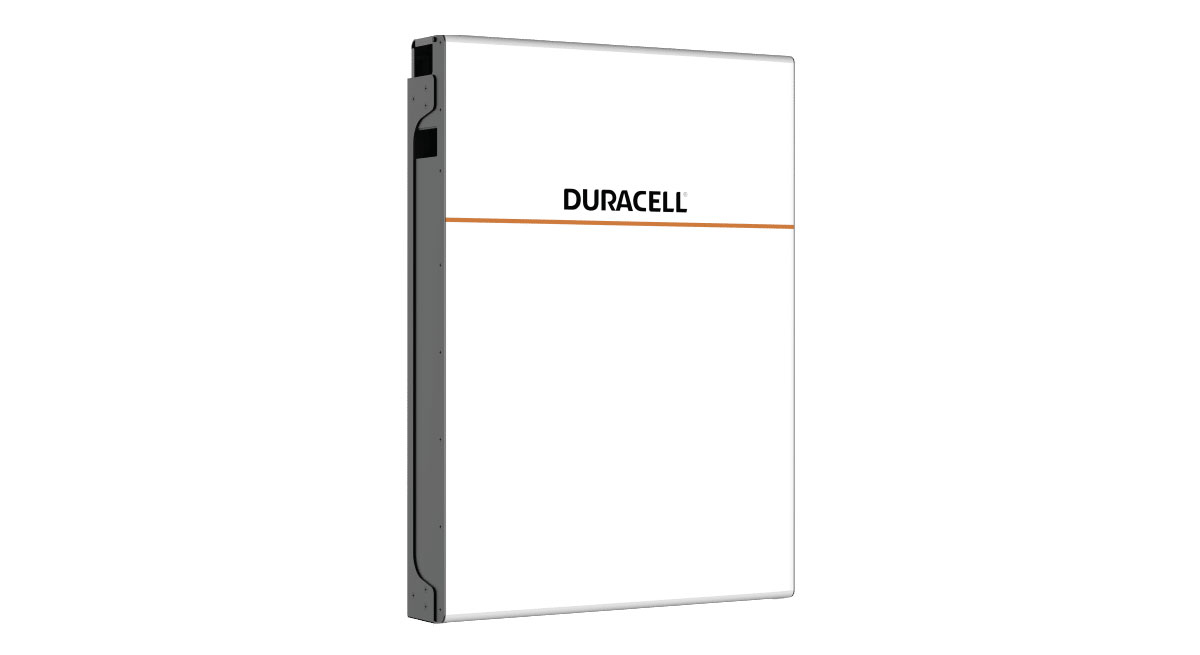Battery storage working alongside solar panels can help homes and businesses to maximise their renewable energy usage and reduce their reliance on the grid.
A battery will add to the cost of getting solar panels, but can also enable you to use more of the electricity they generate to save more money.
Whether using surplus energy from your solar panels or charging it cheaply at night, our guide explains everything you need to know about getting a solar battery.
The key takeaways:
Table of Contents
What is a solar battery?
A solar battery storage system is essentially a large rechargeable battery designed to hold electricity generated by solar panels or other sources for use in your home.
When more energy is being generated by your solar panels than is being used at the time, the excess electricity is stored in the battery for later use.
A battery allows you to use solar power in the evenings and night time after the solar PV system has stopped producing electricity.
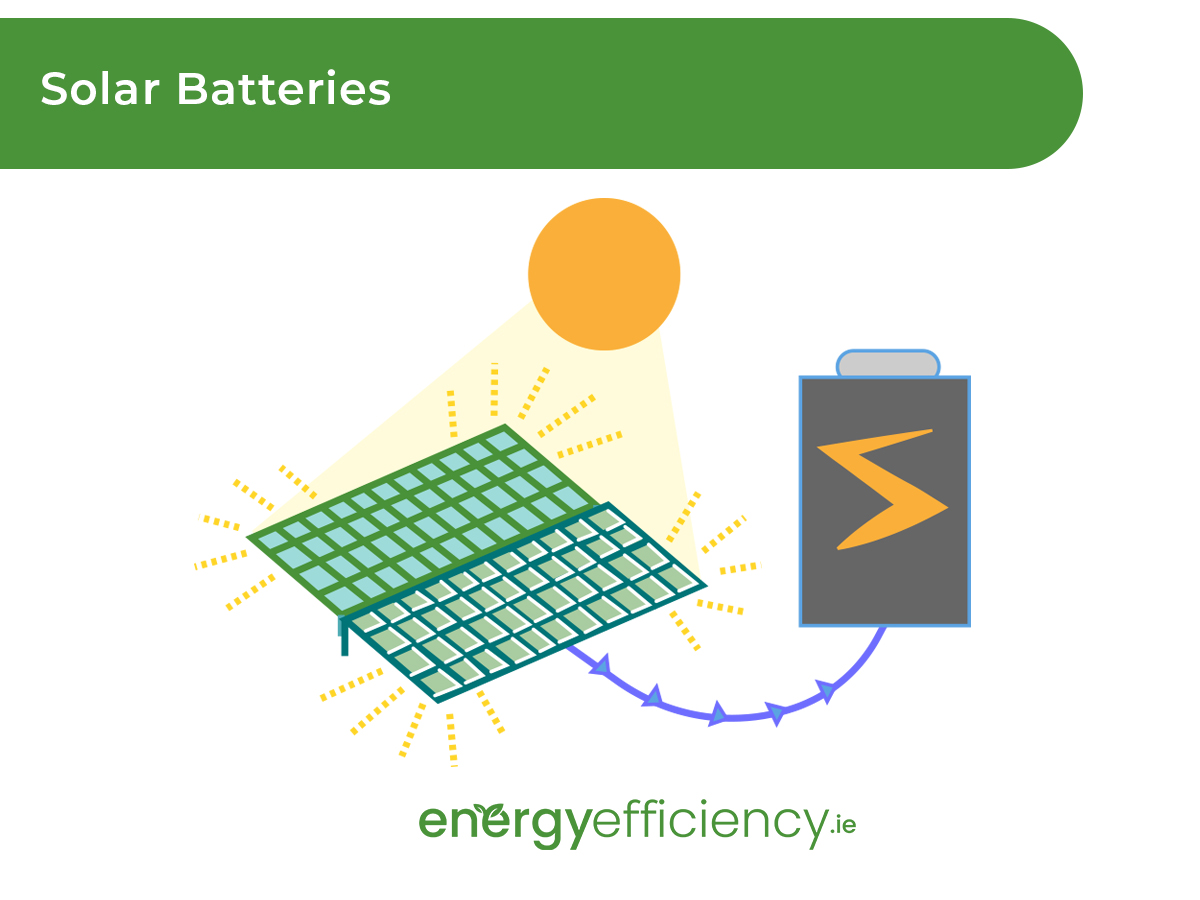
What is the cost of a solar battery?
Solar batteries will typically add roughly €1,700 – €3,00 to the price of getting solar panels for your home in Ireland for a 5kW storage battery.
This is a rough estimate for most households which only purchase a single battery. The best way to see exactly what your cost will be is to get a quote from a solar installer.
The main elements affecting the price of a battery are:
Is there a grant for solar batteries?
There is no SEAI grant specifically for a solar storage battery. If you are getting a storage battery together with solar PV panels, you can receive the solar PV grant, but not if you are only having a battery installed.
The Benefits of Getting a Solar Battery
Should I get a solar battery?
Whether a solar battery would be suitable for your home depends on the number of solar PV panels you have and when you use the most electricity.
If you have a small number of solar panels, or if there are people at home throughout the day using power, then there might not be much excess electricity to work with.
With larger solar power systems, and if not much electricity is being used at the height of the day, then a battery can be a very good investment to ensure that you are getting the most out of their free electricity.
There is also the question of budget. If it is not within your budget to get a battery system installed now, it is better to press ahead with getting solar panels without one to start saving.
How much can you save with a battery on your home?
Adding solar battery storage alongside solar panels can increase the amount of electricity used in your home by anywhere from 10% – 30%.
This can easily result in several hundred euro worth of savings on electricity bills each year. Exact savings will depend on how much electricity you use, and the size of the battery.
Main Uses of Solar Battery Storage
There are two ways to benefit from having a battery. The first is to get the most out of your solar panels by making sure that you use as much renewable energy. The second option is to take advantage of cheaper electricity prices by charging the battery from the grid at night.
Break Even in 6 Years
A typical solar installation is fully paid back within 5 – 7 years. All solar panels we recommend are under warranty for 25 years, so you will enjoy at least 18 years of free energy generation.
0% VAT
As of 10 May 2023, the government has removed all VAT on solar installation and solar panel supply. This means solar has never been more affordable!
€1,800 SEAI Grant
There is a range of government grants available for all new solar installations. Our team will guide you through the application process.
Can a battery provide power during an outage?
A solar storage battery and solar PV panels can provide power to your home during a power outage, but only if a changeover switch is installed to disconnect it from the grid.
Solar panels automatically disconnect in the event of a power outage to avoid electricity being sent into power lines while technicians are working on them.
This is a safety features which comes as standard in all solar inverters.
With a changeover switch installed, your solar panels can continue to charge the solar battery to provide for the home.

AC v DC Coupling
AC and DC coupling are two different ways to connect batteries to your solar PV panels and the household electricity grid.
The electricity produced by your solar panels is Direct Current (DC) power. Batteries also store DC power. In contrast, your household uses Alternating Current (AC) power. So it must be inverted from one to the other in order to be used.
- DC Coupling: Electricity flows first from the solar panels to the inverter, and then into the solar storage battery. This means the electricity going to and from the battery must be inverted three times before it is used.
- AC Coupling: Power is sent to the battery directly from the solar panels before going to the inverter. This means that it only needs to be inverted once before use.
Both types of systems have different advantages and disadvantages based on the setup of your home and specific needs.
AC Coupling
Pros
Cons
DC Coupling
Pros
Cons
What are the alternatives to a battery?
The other choices for what to do with excess solar electricity are to be paid a feed-in tariff for exporting it to the grid, or to use a solar power diverter.
